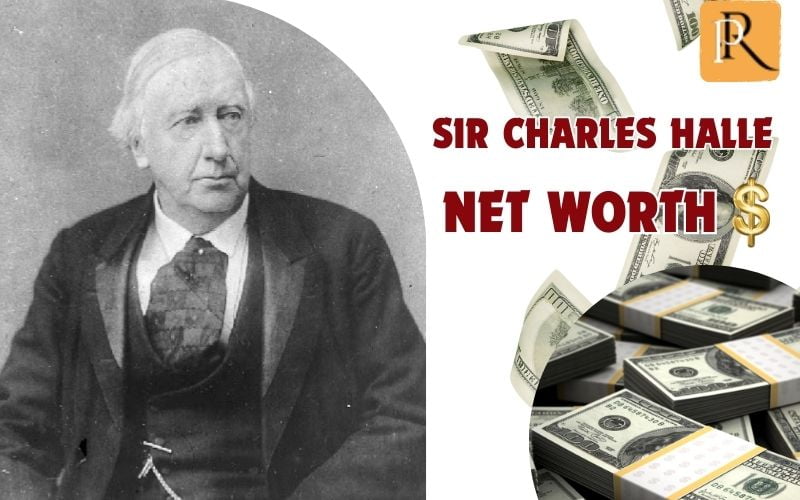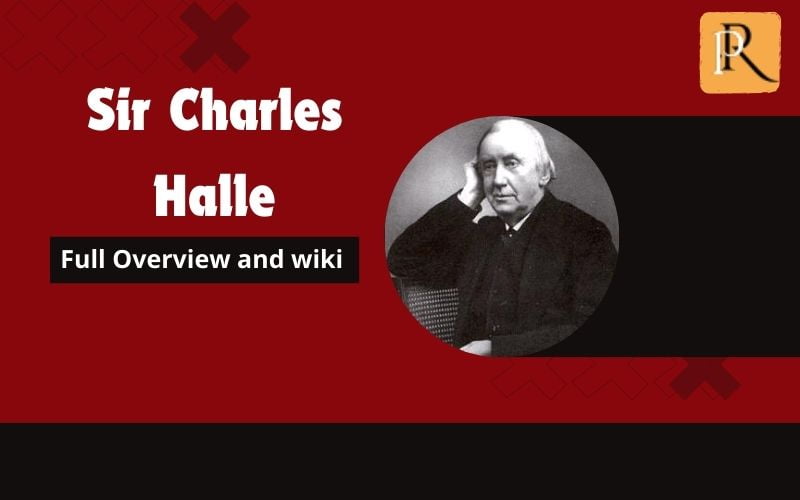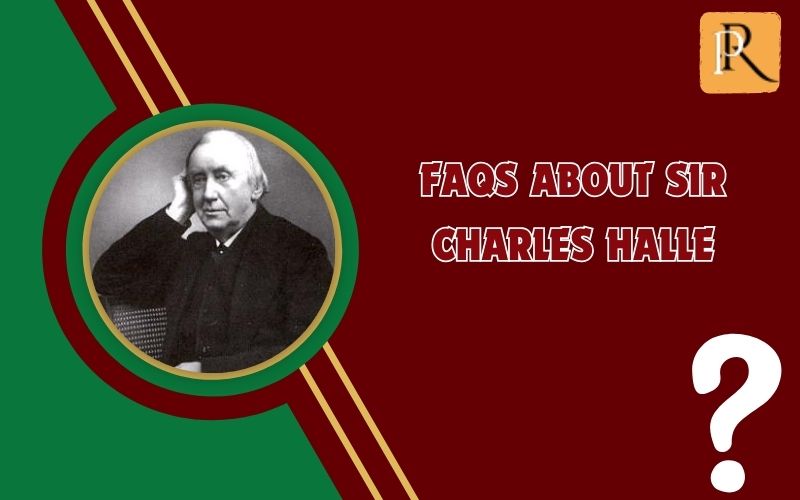Have you ever wondered about the net worth of famous conductor and pianist Sir Charles Halle? As we dive into the fascinating details of his net worth, you’ll discover the financial reflections of his influential music career. Join us as we explore the riches and enduring legacy of this classical music icon.
Quick information
| TRUTH | DETAIL |
|---|---|
| Real name | Karl Halle |
| Popular name | Sir Charles Hallé |
| Sex | male |
| Date of birth | April 11, 1819 |
| Year old | Deceased (Died October 25, 1895) |
| Parents | Carl Friedrich Halle, Caroline Brenschidt |
| Siblings | do not apply |
| Place of birth | Hagen, Westphalia |
| Nationality | English-German |
| Nation | German |
| Education | Study under Christian Heinrich Rinck |
| Marital status | Married twice |
| Sexual orientation | heterosexual |
| Wife/Wife/husband | Desiree Smith de Rilieu, Wilma Neruda |
| Children | 9 |
| Dating | do not apply |
| Net value | do not apply |
| Origin of wealth | Music, conducting, teaching |
| Year of operation | do not apply |
| Category | Classic music |
| Height | do not apply |
What is Sir Charles Hallé’s net worth in 2024?

Although Sir Charles Hallé is not alive to have a net worth in 2024, we can explore his historical financial impact compared to his contemporaries. Hallé, an important figure in classical music, was not only a performer but also an educator and innovator.
Unlike modern musicians, detailed financial records from the 19th century are scarce, but we can infer that his influence was significant through his founding of the Hallé Orchestra and his contributions. for music education.
Similarly, Sir Malcolm Sargent, a famous conductor and composer, exercised considerable influence, as demonstrated by his accumulation of wealth allegedly through various prestigious conducting roles.
Meanwhile, Leo Smith, a modern classical composer and performer, and Colin Matthews, a contemporary British composer, represent different eras. Smith and Matthews, benefiting from the modern commercial music environment, may have clearer and potentially higher financial metrics given the dynamics of the current global music market.
What is Sir Charles Hallé’s Salary/Income in 2024?
As a historical figure, Sir Charles Hallé had no salary or income as of 2024. However, during his time, his income came mainly from performances, conducting, and teaching.
Sir Charles Hallé Overview and Wiki

Early initiation and education
Sir Charles Hallé, real name Karl Halle, was born in Hagen, Westphalia. He showed musical talent at an early age, beginning formal studies under the guidance of his father, an organist.
His remarkable ability was evident when he performed in public at the age of 4 and up, playing in orchestras during his early years. His formal musical training took him to Darmstadt, Germany, where he studied with Christian Heinrich Rinck.
Paris: Center for musical and cultural exchange
In 1836, Hallé moved to Paris, a city that was then the center of European cultural and musical life. There he interacted with luminaries such as Luigi Cherubini, Frédéric Chopin and Franz Liszt, and befriended famous literary figures such as Alfred de Musset and George Sand.
Paris was also where Hallé began a successful series of chamber music concerts with Jean-Delphin Alard and Auguste Franchomme, which lasted until the revolution of 1848 forced him to leave.
Settled in London and contributed to music
After escaping Paris, Hallé settled in London with her family. He quickly became a central figure in the city’s musical life, conducting around the country and performing as a pianist.
Notably, he was the first to play all of Beethoven’s piano sonatas in England, an achievement that greatly enhanced the appreciation of Beethoven’s works.
He began giving piano recitals at his home in 1850, and these later moved to St James’s Hall, becoming an important aspect of London’s musical performances.
Innovation and invention
During his time in London, Hallé also invented a mechanical page turner for pianists, allowing pages to be turned via a foot mechanism. This invention added an element of novelty to his concerts and attracted audiences eager to see this new device in action.
Establishment of the Hallé orchestra
In 1853, Hallé’s career took him to Manchester, where he was appointed to conduct the city’s Gentlemen’s Concert. His commitment to musical excellence culminated in the founding of the Hallé Orchestra in 1858, following a successful gathering of musicians for an exhibition.
Under his leadership, the orchestra set new performance standards and became a beloved institution, significantly impacting Manchester’s cultural scene.
His final years and lasting legacy
Towards the end of his life, Hallé continued to innovate and inspire. He was knighted in 1888, in recognition of his great contributions to music in England.
He toured with his second wife, the violinist Wilma Neruda, and in 1891 he was instrumental in founding the Royal Manchester College of Music.
He died in Manchester in 1895, leaving behind a legacy that influenced the course of classical music in England. His influence is still felt today through the continued success of the Hallé Orchestra and his contributions to music education.
Social media accounts
- Facebook: Not applicable
- Twitter: Not applicable
- Instagram: Not applicable
- YouTube: Not applicable
Frequently asked questions about Sir Charles Hallé

Who is Sir Charles Hallé?
He was a German-British pianist and conductor, best known for founding the prestigious Hallé Orchestra in Manchester, England.
What are some of Charles Hallé’s notable achievements?
In addition to founding the Hallé Orchestra, he was also instrumental in founding the Royal Manchester College of Music in 1893.
Does he have any connections with famous composers?
Yes, during his time in Paris he associated with famous composers such as Frédéric Chopin, Franz Liszt and Hector Berlioz.
What role did Hallé play in popularizing Beethoven’s piano sonatas?
Hallé performed Beethoven’s first complete piano sonata in England, significantly influencing their appreciation and study.
How did you contribute to music education?
His founding of the Royal Manchester College of Music marked a significant contribution to music education in England.
What are some of Charles Hallé’s personal habits?
Famous for his intense practice sessions, he is said to have soaked his fingers in hot water to relieve cramps while performing.
Is Charles Hallé married?
Yes, he was married twice; His first wife was Desirée Smith de Rilieu, and after her death he married the famous violinist Wilma Neruda.
Does he have children who are also involved in art?
That’s right, his son Charles Edward Hallé became a painter and gallery manager, and his daughter Elinor Hallé was a sculptor and inventor.
When and how did he die?
He died on 25 October 1895 in Manchester. His death was sudden and occurred shortly after he was underway.
What happened to the Hallé Orchestra after the death of Charles Hallé?
His friends ensured the orchestra’s survival by ensuring the following season was loss-free, leading to the formation of the Hallé Concert Association to protect the orchestra’s future.
Did Hallé receive any posthumous recognition?
His legacy continues through the continued prominence of the Hallé Orchestra and related ensembles as well as the Royal Manchester College of Music which he helped to found.
What impact has he had on Manchester’s cultural scene?
He greatly enriched the cultural life of Manchester, turning it into a center for classical music through his orchestra and music school.
Conclusion
As we conclude our journey into the financial legacy of Sir Charles Hallé, it is clear that his contributions to music went far beyond mere numbers. His lasting influence and artistic mastery are the real treasures.
For more fascinating insights into the lives of classical music’s greatest figures, keep visiting Rachelparris.com. Let’s take a look at the other best classical pianists.
Categories: Musician
Source: svlsf.edu.vn
